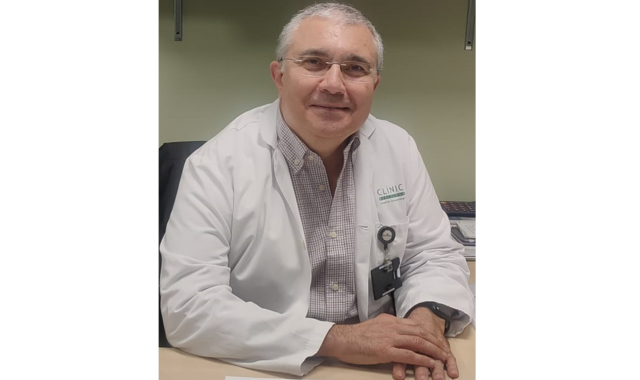
Innovative immunotherapy-based strategy to combat severe antibiotic-resistant infections
Antibiotic resistance is a global health problem that in 2019 resulted in more than 4.95 million deaths worldwide attributable to infections caused by antibiotic-resistant bacteria. This medical and social challenge is further exacerbated by the lack of new therapies to treat this type of disease.
Researchers from the Immunoregulation of the Innate and Adaptive Response group of the Department of Biomedicine of the Faculty of Medicine and Health Sciences of the University of Barcelona (UB), led by Dr Francisco Lozano, are taking part in a new project with an innovative approach based on immunotherapy to treat serious infections that do not respond to antimicrobials.
“The main objective of this proposal is to demonstrate that serious bacterial infections, especially those caused by resistant bacterial strains, can be tackled by means of therapies aimed at optimising the host immune response by selecting new orally effective drugs capable of blocking the so-called immune checkpoints,” explains Dr Lozano, who coordinates the UB’s participation in the consortium. The company Affirma Biotech is leading this initiative, which also involves researchers from the Barcelona Institute for Global Health (ISGlobal).
From oncology to infectious diseases
In recent years, therapies have been developed in the field of immuno-oncology that stimulate the host immune system. Specifically, the use of antibodies directed at blocking the immune checkpoints mentioned above have shown successful results in the treatment of various forms of cancer.
“These immune checkpoints are a family of receptors that are key to balancing host immune system responses so that these do not become excessive and result in self-harm. However, permanent overexpression and overactivation of these receptors in situations of acute or chronic inflammation – such as in advanced cancer and chronic or unresolved infections – leads to inhibition or depletion of immune cells and subsequent progression of the cancer or infection. Thus, blocking these receptors allows the function of the host immune system to be restored in these environments,” explains Lozano, who has extensive experience in the study of immune cell receptors involved in the activation and regulation of the innate and adaptive immune system.
An approach compatible with other antibiotics
An additional advantage of this approach is its potential compatibility with classical antimicrobial treatments. “While most antimicrobials target different biological targets present in the pathogen, checkpoint inhibitor blockers would help to revitalise the host immune cell response against infection. These simultaneous treatments may generate additive or synergistic therapeutic effects in combating resistant bacterial infections, as the new compounds are not designed to interact with these bacteria but with the patient’s immune cells,” he argues.
New experimental procedures
The project is based on a group of new molecules developed and patented by Affirma Biotech that have been specifically designed to block the function of these checkpoint receptors. These are small molecules with a shorter half-life in the body, which will allow better management of potential adverse events. These candidates will be tested during the three years of the project in in vitro and in vivo assays to select at least one drug for future preclinical testing and clinical development.
This research will also allow the implementation of new experimental procedures to test the impact of these new molecules on the antibacterial response. “This is a key scientific tool for the testing of new products, both for the partners in this consortium and for other research groups or companies that are actively working in this field,” Lozano adds.
The project will also serve to improve understanding of the behaviour of the immune system in bacterial infections, which will help “develop better strategies to resolve these infections, starting with immune checkpoints, but also thinking about other possible immunomodulatory drugs,” says Dr Lozano.
The project, with reference number SCPP2200C009596, has obtained 227.244 euros in funding within the framework of the 2022 call for public-private collaboration projects of the 2021-2023 Spanish National Plan for Scientific, Technical and Innovation Research, as part of the Recovery, Transformation and Resilience Plan.

